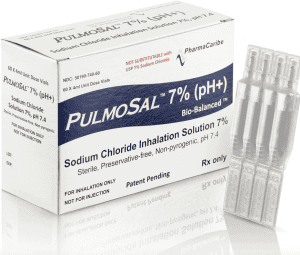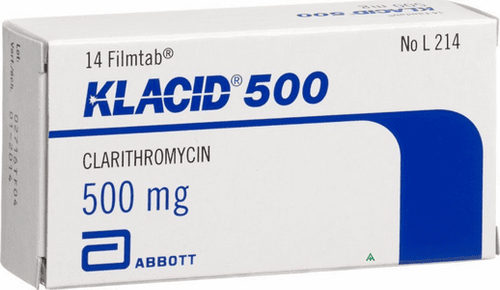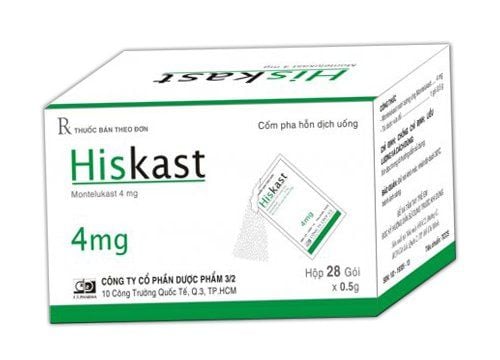This is an automatically translated article.
Actacridin drug is made in the form of an oral solution, with the main ingredients being Triprolidine HCl and Phenylephrine HCl. The drug is used in the treatment of symptomatic relief of inflammatory diseases of the upper respiratory tract.
1. What are the uses of Actacridin?
1 bottle of Actacridin 100ml contains 0.025g Triprolidine HCl and 0.1g Phenylephrine HCl and other excipients. The 2 main ingredients of Actacridin have the following effects:
Triprolidine hydrochloride is a derivative of propylamine, a 1st generation antihistamine. Triprolidine has the ability to inhibit the effects of histamine by inhibiting H1 receptors. In addition, this ingredient also has the effect of causing mild drowsiness, anti-muscarin. Triprolidine is used by mouth for the treatment of certain allergic diseases, often in combination with some other medicines to treat coughs and colds. In addition, this ingredient is also used topically on the skin (however, there is a risk of sensitization); Phenylephrine hydrochloride is an a1 (a1-adrenergic) sympathomimetic that acts directly on a1-adrenergic receptors, constricting blood vessels and increasing blood pressure. The drug is used to relieve upper respiratory tract congestion. The drug has a weaker antihypertensive effect than norepinephrine but has a longer duration of action. Phenylephrine hydrochloride causes reflex bradycardia, decreased blood flow through the kidneys, decreased blood volume in the circulation, and decreased blood flow to many tissues and organs of the body. At therapeutic doses, this ingredient has no stimulatory effect on cardiac b-adrenergic receptors (b1-adrenergic receptors) but at large doses does stimulate b-adrenergic receptors. At therapeutic doses, this drug has no effect on the central nervous system. Indications for use of Actacridin:
Relief of symptoms of upper respiratory tract diseases such as: vasomotor rhinitis, allergic rhinitis, common cold and flu. Contraindications to the use of Actacridin:
Patients with hypersensitivity to one of the drug components; Patients who are taking MAOIs, drugs for severe hypertension or have severe coronary artery disease.
2. Usage and dosage of Actacridin
Usage: Orally.
Dosage:
Adults and children from 12 years old and above: Use dose 10ml/time x 3 times/day; Children 6 - 12 years old: Use dose 5ml/time x 3 times/day; Children 2 - under 6 years old: Use dose 2.5ml/time x 3 times/day; Children 6 months - under 2 years: Use dose 1.25ml/time x 3 times/day. When administering Actacridin to a child under 2 years of age, consult a doctor. Overdose: In case of an overdose of Actacridin, the patient should immediately go to a medical facility for an appropriate treatment plan.
Missed dose: In case of forgetting to take 1 dose of Actacridin, the patient should promptly notify the doctor for appropriate advice. Patients should not arbitrarily take Actacridin to make up for the dose without the consent of the doctor.
3. Actacridin side effects
When using Actacridin, patients may experience side effects such as:
Common: Drowsiness, fatigue; Uncommon: Skin rash, dry mouth, dry nose and throat, blurred vision, little urination; Rare: Mania, tinnitus, tachycardia. When experiencing side effects of Actacridin, patients should immediately notify their doctor to receive advice on the most appropriate management measures.
4. Be careful when using Actacridin
Before and while using Actacridin, patients should be aware:
Actacridin oral solution may cause drowsiness. Therefore, patients should not drive or operate machinery while taking the drug or while the medication is taking effect; Avoid concomitant use of Actacridin with alcohol and other CNS depressants, as this may increase the side effects of this drug; Actacridin should be used with caution in patients with severe hepatic or renal impairment, prostatic hypertrophy, severe hyperthyroidism, narrow-angle glaucoma, severe cardiac ischemia; Using Phenylephrine hydrochloride in late pregnancy or labor can make the fetus more susceptible to hypoxia and bradycardia. In addition, the use of Actacridin with antibiotics will increase complications for pregnant women. Therefore, this drug should not be used in pregnant women; Components Triprolidine hydrochloride is excreted in breast milk, so Actacridin should not be used during lactation. If the drug must be taken, the mother should stop breastfeeding.
5. Actacridin drug interactions
Drug interactions can change the effectiveness of the drug or increase the effect of side effects. Some drug interactions of Actacridin include: Do not use Actacridin concurrently in patients who are taking anticonvulsants, appetite suppressants, tricyclic antidepressants, sedatives, antihypertensives, Amphetamines. , Furazolidone.
To avoid drug interactions, it is best for the patient to inform the doctor about the drugs they are taking / recently taking, their medical history. At the same time, the patient must not arbitrarily start, stop or change the dose of any medicine without the consent of the doctor.
When prescribed to use Actacridin, the patient should strictly follow the doctor's instructions on how to use, dose and time to take the drug. If there are any questions that require consultation or any unusual symptoms occur, patients should contact their doctor for detailed support.
Follow Vinmec International General Hospital website to get more health, nutrition and beauty information to protect the health of yourself and your loved ones in your family.
Please dial HOTLINE for more information or register for an appointment HERE. Download MyVinmec app to make appointments faster and to manage your bookings easily.













